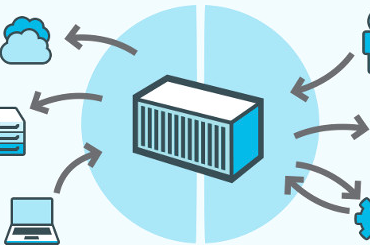Mirantis, CoreOS Marry OpenStack With Containers

Capitalizing on momentum generated by the release of a production-ready container cluster manager, OpenStack vendor Mirantis and hyperscale Linux developer CoreOS are combining the former's OpenStack distribution with the latter's software stack designed to move application containers into production.
The partnership announced on Thursday (Aug. 6) would allow a commercial version of Google's Kubernetes software container management platform to run on top of the OpenStack cloud. CoreOS claims its Tectonic platform is the first commercial platform for running Kubernetes 1.0, which was released in July. Google initially released the open-source container management system last year, and hyper-scalers like eBay have begun deploying it with their OpenStack clouds.
Tectonic, the commercial distribution of the combined Kubernetes and CoreOS software stack, is intended to stabilize infrastructure to get clusters of Linux application containers into production and running on enterprise platforms.
Mirantis, Mountain View, Calif., and San Francisco-based CoreOS said their goal is to help DevOps teams deploy software and deliver applications faster. "Putting Kubernetes on top of OpenStack gives them flexibility in how they build their applications," Boris Renski, Marantis cofounder, noted in a statement.
The partners also said integration of Tectonic with OpenStack would help deliver a hyperscale infrastructure in which distributed applications could be delivered either in the cloud or on bare metal.
The production-ready version of Kubernetes is designed to manage containerized applications at scale across multiple hosts. As a platform for container management based on OpenStack, Tectonic combines Kubernetes and the CoreOS software stack that includes management of workflows and dashboards along with additional tools to automate deployment. It runs on premise or in public clouds, the company said.
Those attributes, analysts say, help meet the growing need for comprehensive container deployments that address the requirements of both developers and operators. Those concerns along with worries about container security have slowed deployment of application container technology in production environments.
"With this deal, companies can deploy an application on Mriantis OpenStack with Tectonic and if they have a problem with the containers, they can call CoreOS for help, and if they have a problem with OpenStack, they can call Mirantis," Kamesh Pemmaraju, director of partner marketing at Mirantas, noted in a blog post.
The partnership also seeks to capitalize on the shift to cloud-based software development as well as cloud-native applications and, with them, the growing need among developers for micro-services and applications containers, the partners said.
CoreOS is among a group of Linux Foundation and Google partners forming a Cloud Native Computing Foundation designed to establish an overall framework for "container-based computing." With the production version of Kubernetes as its foundation, the initiative will seek to promote cloud-native, micro-service-based applications.
Along with Google and CoreOS, foundation members include Cisco Systems, Docker, IBM, Intel, Joyent, Mesosphere and Red Hat.
Related
George Leopold has written about science and technology for more than 30 years, focusing on electronics and aerospace technology. He previously served as executive editor of Electronic Engineering Times. Leopold is the author of "Calculated Risk: The Supersonic Life and Times of Gus Grissom" (Purdue University Press, 2016).










